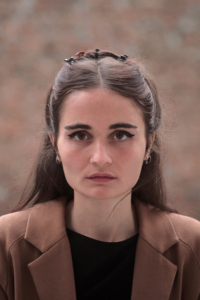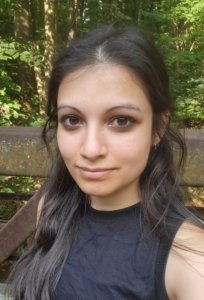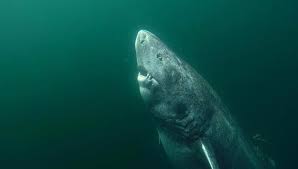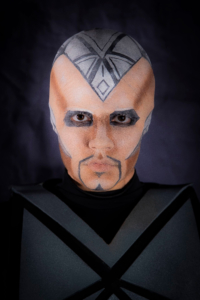The Otherwise Motherboard is delighted to announce the selection of two new Otherwise Fellows: illustrator and animator Aude Abou Nasr and author Ayida Shonibar.

Aude Abou Nasr is a French-Lebanese illustrator, animator, and visual artist based in Beirut. She was selected for the beautiful illustrations she is contributing to Le Chat de Sara, a children’s book written by Loé Petit that uses magic to explore intersex embodiment and bodily autonomy. Sara’s titular cat witnesses her loss of magic as she undergoes forced medical intervention. Unable to help Sara alone, the cat organizes with other animals who have accompanied their children into the Dream World, safe from the harms of the Real World. Collectively, they empower Sara to resist the imposed medical violence. In the process, readers, alongside Sara, learn that there are many ways to embody who you are, and see, alongside the cat, the magic and beauty that is intersex life.
The committee was moved by Abou Nasr’s bridging of her artistic talents (that purple cat is beyond gorgeous, as is Sara!) and her activist work as a member of Collectif Intersexe Activiste. We love that this is an intersex-led project that champions agency for intersex children. The importance of children’s agency is often overlooked, especially when their bodies are medicalized. It’s wonderful to see a project for children that addresses this difficult experience with both honesty and joyfulness. Now more than ever, we need stories that show intersex kids and their families that advocating for their bodies is not only possible, but empowering.

Ayida Shonibar is an Indian-Bengali immigrant whose short fiction, essays, and poetry tell stories, horrific and powerful, about the ties that bind communities. Shonibar was selected for their horror novel in development with grounded speculative science elements inspired by her experiences as a marginalised researcher.
The committee was inspired by Shonibar’s skill and care when weaving together the stories of so many, including the experiences of immigrants, the neurodiverse, and the queer. In a time when immigrants are facing immense hostility, especially in the US, it feels especially important to create space for speculative fiction from immigrant voices. This fellowship will offer Shonibar the chance to work on a longer piece, and we are very excited to see how that develops.
The Otherwise Award celebrates works of speculative fiction that imagine new futures by exploring and expanding our understanding of gender roles. Through the Fellowship program, the Otherwise Motherboard also encourages those who are striving to complete works, to imagine futures that might have been unimaginable when the Otherwise Award began. The Fellowship program seeks out new voices in the field, particularly from communities that have been historically underrepresented in science fiction and fantasy and by those who work in media other than traditional fiction.
Each Fellow will receive US$500. The work produced as a result of this support will be recognized and promoted by the Otherwise Award. Over time, the Fellowship program will create a network of Fellows who can build connections, provide mutual support, and find opportunities for collaboration.
The members of the 2025 selection committee for the Otherwise Fellowships were former Otherwise fellow Mars Lauderbaugh and Otherwise Motherboard members Julia Rios and Jed Samer.
For more about the Fellowships and the work of past Fellows, visit the Otherwise Award website.
This blog post also serves as a press release announcing the 2025 Otherwise Fellowship recipients. For more information on the Otherwise Award or this press release, contact Jed Hartman, secretary of the Otherwise Award Motherboard, at info@otherwiseaward.org.



 Shreya Ila Anasuya writes short fiction set in real and imaginary South Asian cities. In the application, Shreya wrote, “I find that my work repeatedly asks this question – who are women and femme people in their fullest manifestations, and how does their experience of themselves contrast to their culture’s expectations and demands of them?” Her work is informed by lived experience as a queer non-binary femme person from India who lives with chronic illness. Funding from the Fellowship will give Shreya the time needed to work on a collection of historical speculative fiction set in South Asia or South Asia inspired secondary worlds. The Fellowship funding will also make it possible for Shreya to take classes that will connect her to the greater speculative fiction community, combating the loneliness of being “a writer of strange fiction in Calcutta during a global pandemic.”
Shreya Ila Anasuya writes short fiction set in real and imaginary South Asian cities. In the application, Shreya wrote, “I find that my work repeatedly asks this question – who are women and femme people in their fullest manifestations, and how does their experience of themselves contrast to their culture’s expectations and demands of them?” Her work is informed by lived experience as a queer non-binary femme person from India who lives with chronic illness. Funding from the Fellowship will give Shreya the time needed to work on a collection of historical speculative fiction set in South Asia or South Asia inspired secondary worlds. The Fellowship funding will also make it possible for Shreya to take classes that will connect her to the greater speculative fiction community, combating the loneliness of being “a writer of strange fiction in Calcutta during a global pandemic.” The work of independent filmmaker Eleyna Sara Haroun has focused on encouraging children to to question, challenge and discuss the effects of issues like minority rights, gender equality, climate change and child abuse on their communities and themselves. Her project “Filmwalli” is a series of five short films, to be produced in both Urdu and English. Each story is a folk tale that challenges traditional narratives of women in Pakistani society. These films/folk tales will encourage children to realize that everyone has the right to live to their full potential. Funding from the Otherwise Fellowship will allow Eleyna to develop two out of the five stories into scripts, complete the research and treatments for the other three scripts, and collaborate with a storyboard artist on these tales. With that work in place, she can submit her work to festivals and writers labs and apply for greater funding to begin the animation production of the films and the development of a campaign built around these films.
The work of independent filmmaker Eleyna Sara Haroun has focused on encouraging children to to question, challenge and discuss the effects of issues like minority rights, gender equality, climate change and child abuse on their communities and themselves. Her project “Filmwalli” is a series of five short films, to be produced in both Urdu and English. Each story is a folk tale that challenges traditional narratives of women in Pakistani society. These films/folk tales will encourage children to realize that everyone has the right to live to their full potential. Funding from the Otherwise Fellowship will allow Eleyna to develop two out of the five stories into scripts, complete the research and treatments for the other three scripts, and collaborate with a storyboard artist on these tales. With that work in place, she can submit her work to festivals and writers labs and apply for greater funding to begin the animation production of the films and the development of a campaign built around these films. Poet FS Hurston will be working on a novel in verse with a fascinating main character: a teenager in contemporary Dakar who was born with the memories of a 400-year-old shark. Through this connection with a shark, the teenager meets ghosts of the past. FS Hurston writes that each character in the novel will be based on “a queer trans African person from anthropological archives, journals of slaveowners, colonial administrative documents, slave ledgers. The story will explore “the wide and capacious space of what white anthropologists couldn’t or didn’t want to understand of queer Africans,….speculating on what is possible on the other side of the colonizer’s gaze….” The funding from the Fellowship will help cover the cost of travel in Senegal and Cameroun, the two places where most of the novel takes place.
Poet FS Hurston will be working on a novel in verse with a fascinating main character: a teenager in contemporary Dakar who was born with the memories of a 400-year-old shark. Through this connection with a shark, the teenager meets ghosts of the past. FS Hurston writes that each character in the novel will be based on “a queer trans African person from anthropological archives, journals of slaveowners, colonial administrative documents, slave ledgers. The story will explore “the wide and capacious space of what white anthropologists couldn’t or didn’t want to understand of queer Africans,….speculating on what is possible on the other side of the colonizer’s gaze….” The funding from the Fellowship will help cover the cost of travel in Senegal and Cameroun, the two places where most of the novel takes place.
